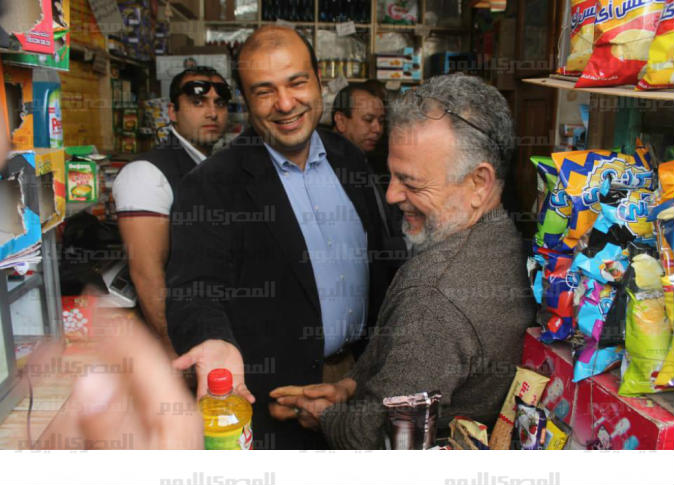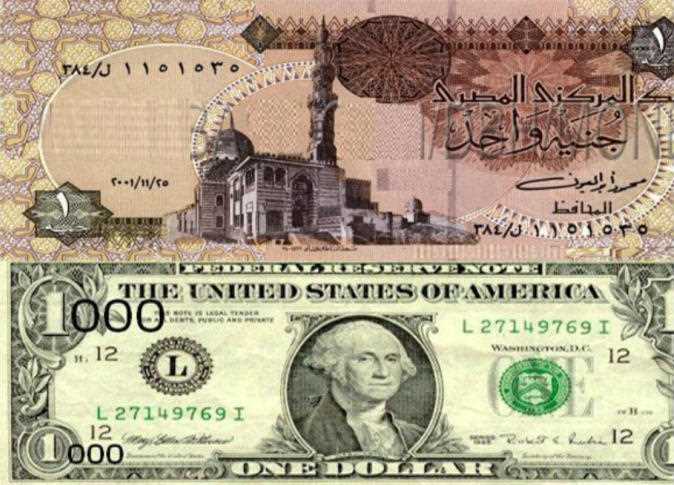
Supply and Internal Trade Minister Khaled Hanafi explained in an interview with Al-Masry Al-Youm President Abdel Fattah al-Sisi's initiative to control market prices and said the government will intervene at the end of November.
He said the government aims to reduce prices by 30 percent by reducing the number of intermediary traders.
Sisi warned traders of hoarding commodities because their prices will inevitably go down, according to Hanafi
Hanafi said the ministry is buying 70 percent of imported meat and poultry this year to sell meat for LE35 per kilo in 50,000 outlets.
He also said the ministry has a plan to build 10 locations for logistics at a cost of LE1.1 billion for the protection of perishable products.
A sugar factory at a cost of LE90 million was opened, expecting it to generate LE32 million in annual profits, said Hanafi.
“We also aim to increase the number of vans selling food commodities in poor areas in coordination with the armed forces,” he explained.
Q: What is the president's plan to control market prices of food commodities?
A: The government will intervene at the end of November and is an essential source for the supply of certain goods that will be distributed through public and private sector outlets. Also, we aim to increase the number of vans selling food commodities in poor areas in coordination with the armed forces.
Q: And what will the Supply Ministry in particular do?
A: The ministry makes sure high-quality goods are sold to consumers.
Q: What about monopolistic practices of some traders of food commodities?
A: The abundance of the commodities that the government will introduce to the market will end those practices.
Q: What are they?
A: Oils, grains, meat and poultry.
Q: Will you also supply the private sector outlets?
A: Yes, but we will reduce the number of intermediary wholesale and retail traders, which would consequently reduce prices by 30 percent.
Q: Does this mean the government will monopolize certain commodities?
A: No. We will act within the free market system stipulated in the Constitution.
Q: How will you develop the coops?
A: We have a plan to develop and modernize nearly 500 coops, of which we have already developed 160 in four months. We are opening more coops in poor areas. We want them all to compete with the private sector.
Q: How many will they be in total?
A: We are targeting 50,000.
Q: Can they really compete with the private sector?
A: Yes. They already made LE15 billion in profit last year.
Q: How about the mobile outlets project?
A: We signed a cooperation protocol with the Social Development Fund for 3,000 vans in poor areas.
Q: Have you signed contracts to buy imported meat?
A: We bought 70 percent of imported meat and poultry. We bought meat from Sudan that we will sell for LE35 per kilo.
Q: What about the project granting loans to young people for them to open outlets in the provinces?
A: We are activating a protocol with the Social Development Fund of LE75,000 to LE100,000 per loan for that purpose.
Q: Will the loan be in cash or in commodities?
A: In commodities. And procedures are very simple. We are also training them on sales and bookkeeping techniques.
Q: What about locations for logistics for perishable products?
A: We aim to build 10 of them in the provinces at a cost of LE1.1 billion. They will protect theses commodities and consequently help reduce their prices.
Q: Did you have problems finding foreign currency to import goods?
A: We are coordinating with the Central Bank to facilitate procedures for that.
Q: There were reports from supervisory agencies about corruption in the wheat and bread distribution system. Is this true?
A: Not true. We have eliminated the queues that we used to see outside bakeries. We have supplied 1.9 million tons of wheat this year. And we paid $265 per ton as opposed to $300 last year.
Q: What about the subsidy smart cards? Have they been assigned to the Military Production Ministry?
A: Yes, in order to make sure that subsidies go to people that need them the most. They will be ready in three months and there are 20 million cards in total.
Q: How about the unlicensed bakeries? Do you know that tuk-tuks sell bread in the provinces?
A: They will vanish gradually when the official outlets are expanded. Also, they buy flour from the black market, which they will no longer be able to do once the price of flour is liberated.
Q: Some groceries selling Supply Ministry subsidized goods sell for more than the official prices. What will you do about that?
A: Consumers should report them to the ministry or the Consumer Protection Agency, using the hotlines designated for that purpose.
Q: What about franchises to smaller groceries to sell subsidized goods?
A: We are working on adding them to the existing franchises we have. The Chamber of Commerce has four million listed dealers. It can help us with this.
Q: Do we need more sugar factories?
A: Yes. We have just opened one in the Sixth of October City that will produce 30,000 tons per month. It cost LE90 million. The factory will save LE180 million a year due to bad packaging which wastes 10-15 percent of loose production. It will generate a profit of LE32 million per year.
Q: Does local production meet market needs?
A: No. We need three million tons per year, while we produce 2.1 million tons.
Q: How about exports?
A: We aim to export sugar to the African market for $850 per ton, which is more than the local market selling price. This will achieve profits for the sugar factories and provide hard currency.
Q: How do you supervise your outlets?
A: We have installed surveillance cameras to make sure commodities are not leaked to the black market. Also, consumers can use our hotline to report irregularities. And we send teams from our young staff on field inspection visits.
Edited translation from Al-Masry Al-Youm




